It is not easy to find work-life balance in the world today. Nevertheless, a Chinese retail giant has come up with unhappy leaves for employees. This new movement really defies toxic corporate culture. Let’s find out how!
What Are Unhappy Leaves For Employees?
Pang Dong Lai, headed by its founder and chairman Yu Donglai, is changing the traditional working culture. And this Chinese company introduces unhappy leaves.
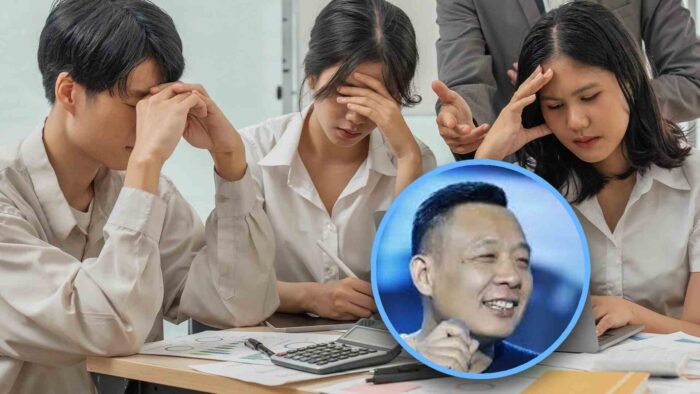
This policy lets employees take additional 10 days off when they are feeling low without any inquiries. Everyone goes through tough times sometimes and may need some time off work to recharge themselves as said by Yu Donglai.
Related: Are You Feeling Depressed At Work? Is Your Job Making You Sick?
But that’s not all there is to it; this company has got one heck of an employment policy too! Workers only have to put in seven-hour shifts every day from Monday to Friday which means they’re entitled for weekends off too!
Moreover, they also get 30-40 days annual leave plus extra during Lunar New Year celebrations while at other firms these numbers might be thought of as fantasy figures rather than reasonable expectations.
According to Yu Donglai, healthy workforce happiness should never be underestimated because it can determine whether or not an enterprise succeeds financially hence he walks his talk on such matters.
Numbers are just numbers for Pang Dong Lai – they want freedom and love throughout their organization structures even at the grassroots where each cleaner could earn good wages based on merit coupled with skills demonstrated while working there. Yes, please!
In this system, every single employee starting from top management down right up to cleaners benefits equally financially depending upon how skilled or dedicated s/he proves him/herself within different job levels across various departments.
The toxicity of work cultures doesn’t sit well with Yu Donglai who believes that making people overwork harms ethics let alone personal growth.
Businesses shouldn’t force their staff members into overtime either since it limits development opportunities besides being inhumane towards workers’ health especially mental wellness according to reports made available by his company.
And it seems like employees are in agreement too because such a move has attracted immense praise on Chinese social media platforms where users are commending this as being forward-thinking for organizations henceforth.
4 Super Important Reasons To Have A Good Work-life Balance
1. Healthier Minds and Bodies
If we are not constantly stressed over our jobs, we can take care of ourselves better. Keeping that equilibrium helps to keep us fit in both our bodies and thoughts too.
2. Better Relationships
Work should never be our whole life, right? We need time for friends and family because they make us feel alive. It could be a simple dinner at home or an adventurous day out but these connections matter.
3. Increased Productivity
Taking breaks actually makes us more productive believe it or not. When we step back from something for some time then come back at it again with fresh eyes or renewed energy, we are able to see things differently which allows us solve problems better than before.
Stepping away from the desk isn’t slacking off; it’s being smart about how you use your working hours.
4. Happiness Factor
Ultimately, everything is about happiness, isn’t it? Being able to live life fully is what matters most. Finding this point where one can pursue their hobbies or just sit on the couch without feeling guilty about anything else creates such a difference in people’s lives.
Related: 7 Somewhat Painful Facts About Shared Work
With increasing workplace anxieties worldwide, unhappy leaves for employees have become necessary more than ever before.
Share your thoughts on this in the comments below!
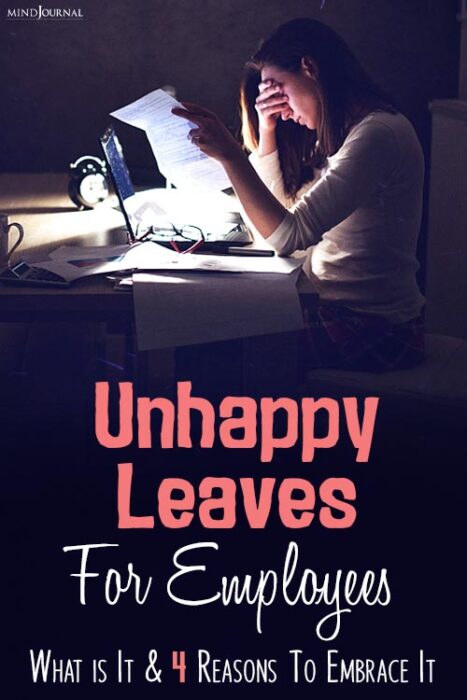
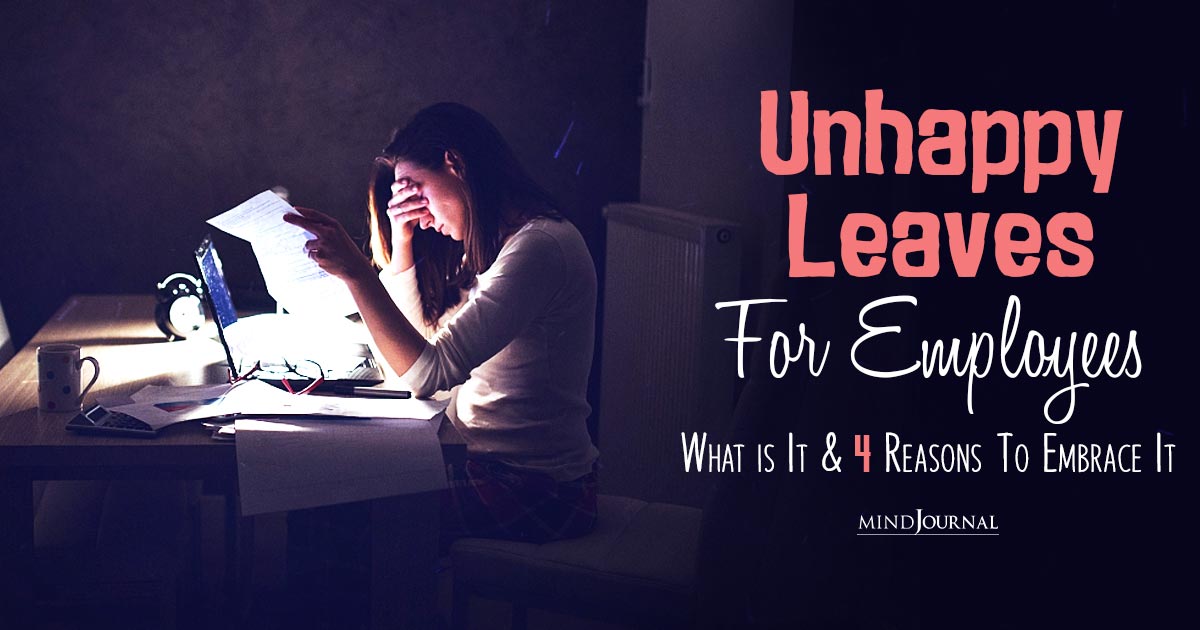
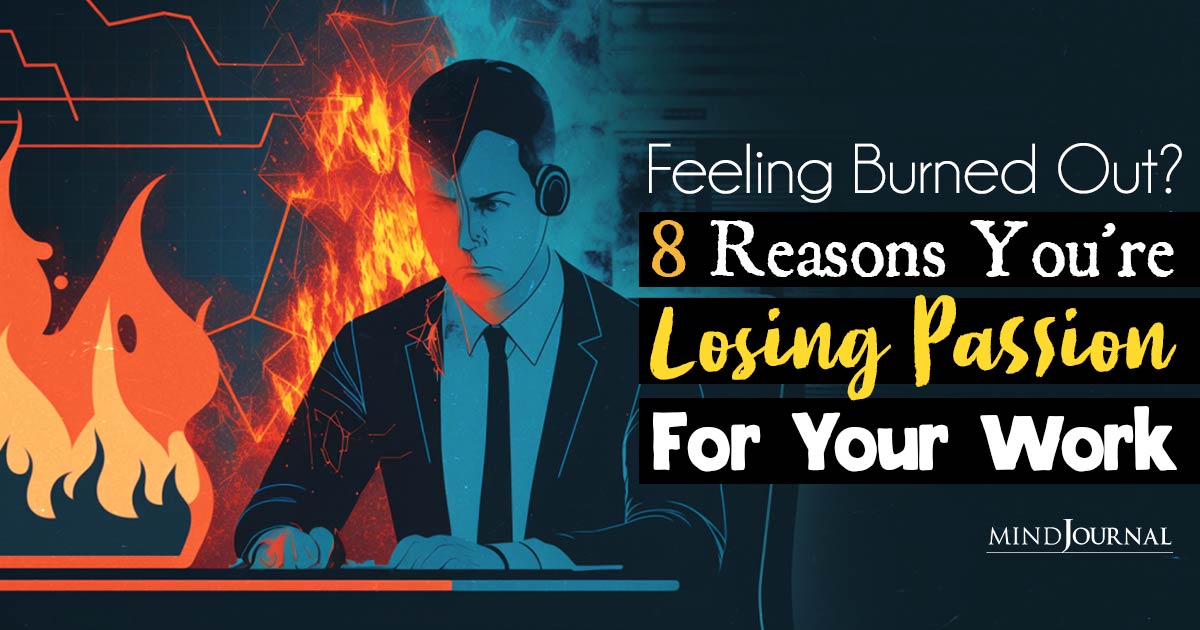
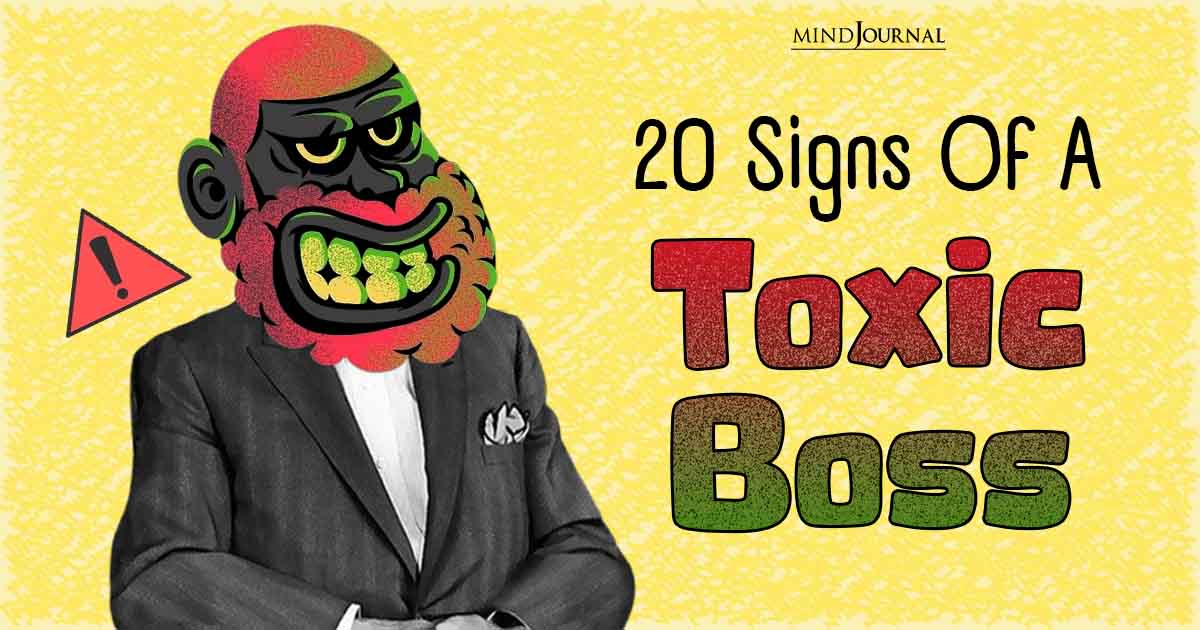
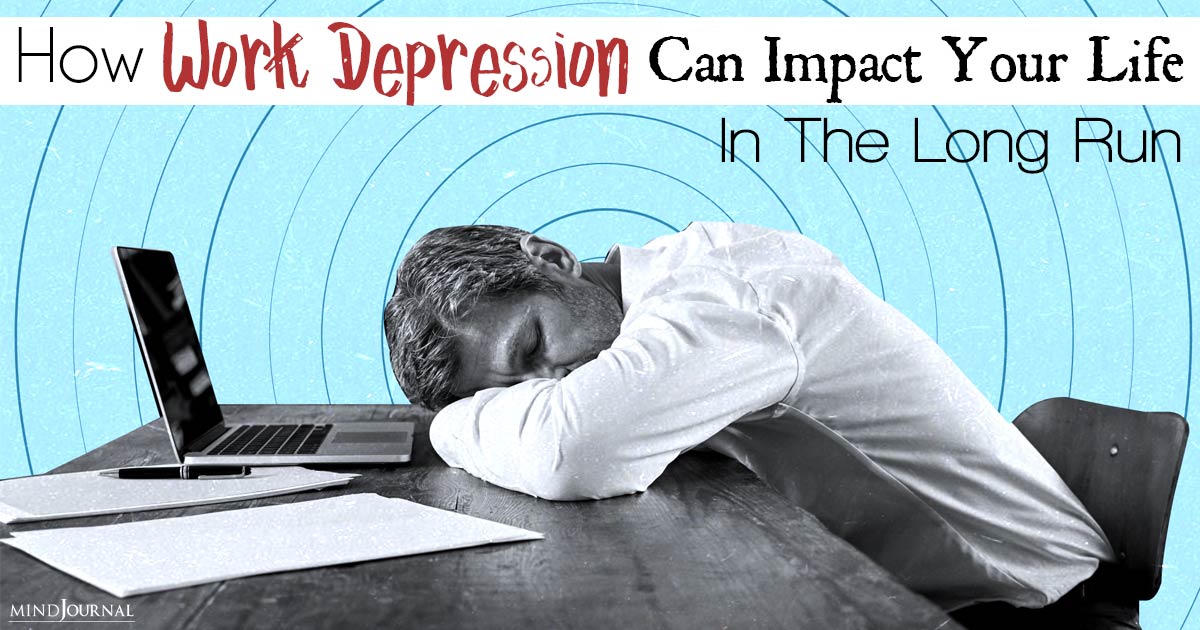
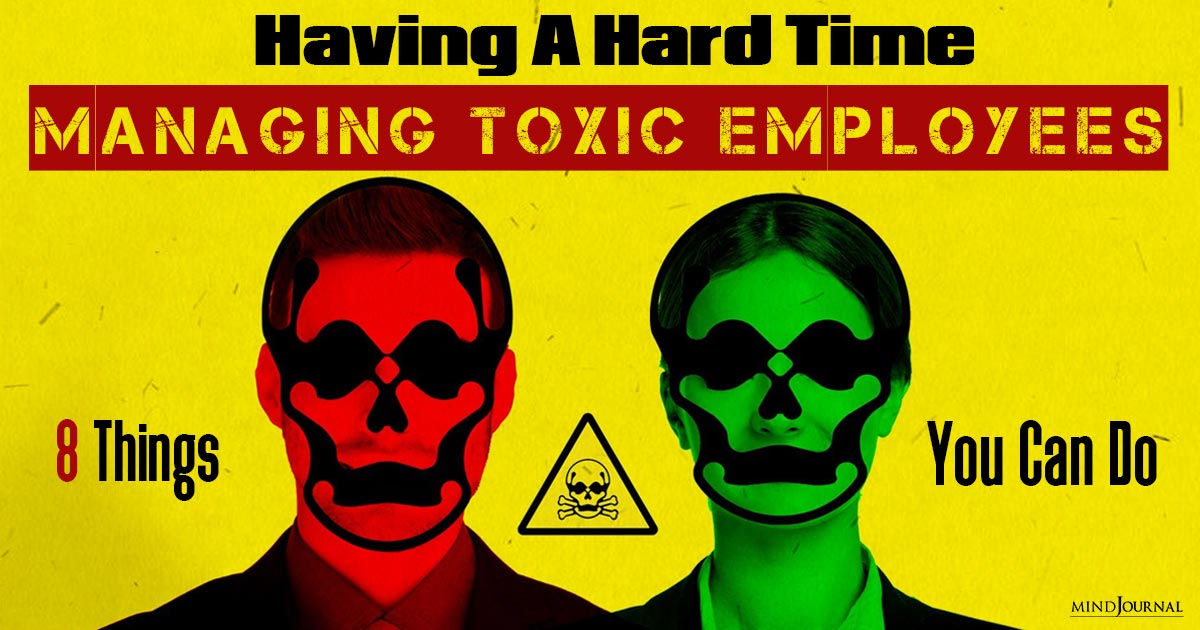

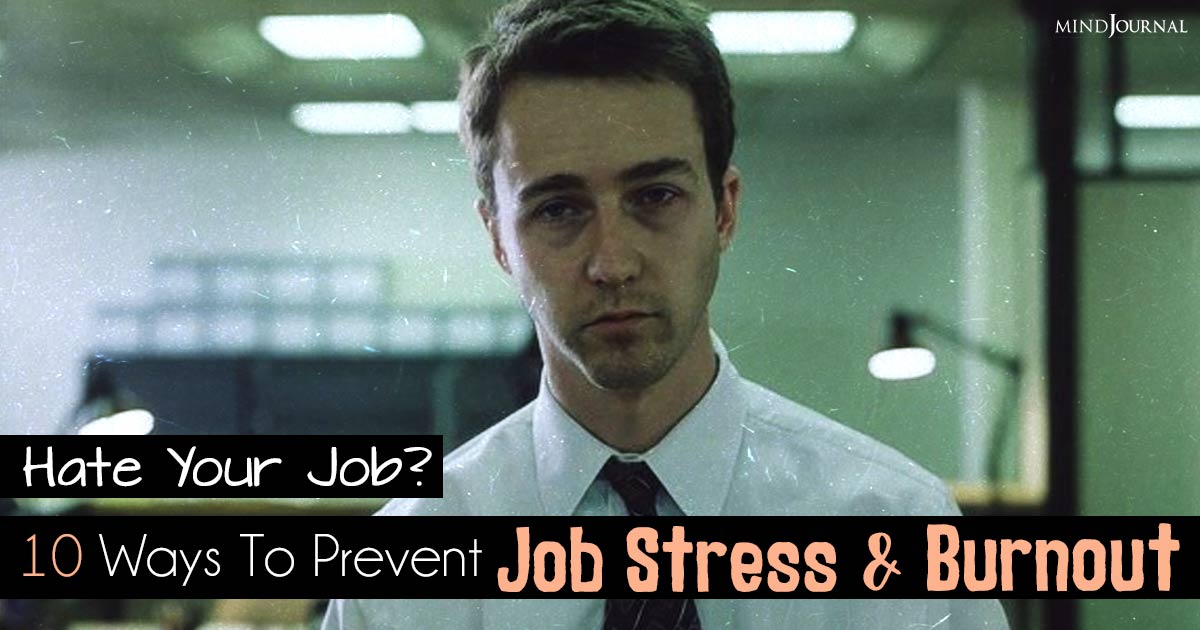
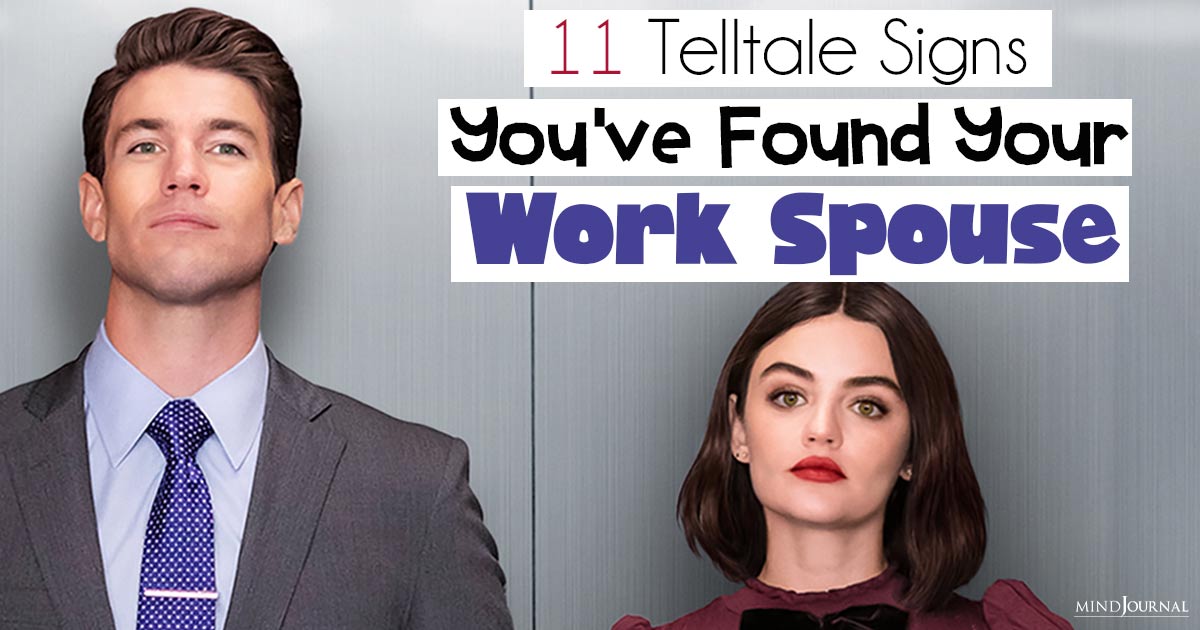
Leave a Reply
You must be logged in to post a comment.